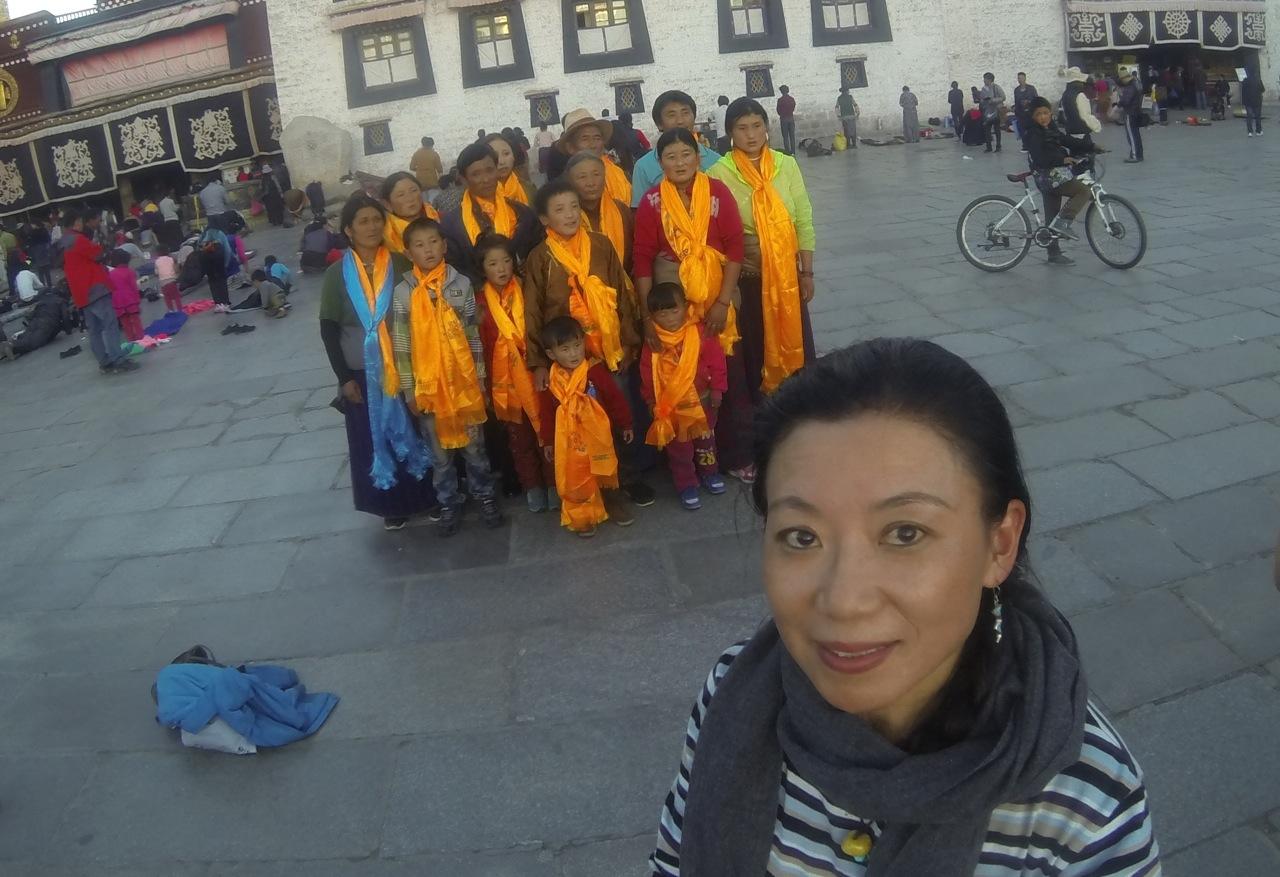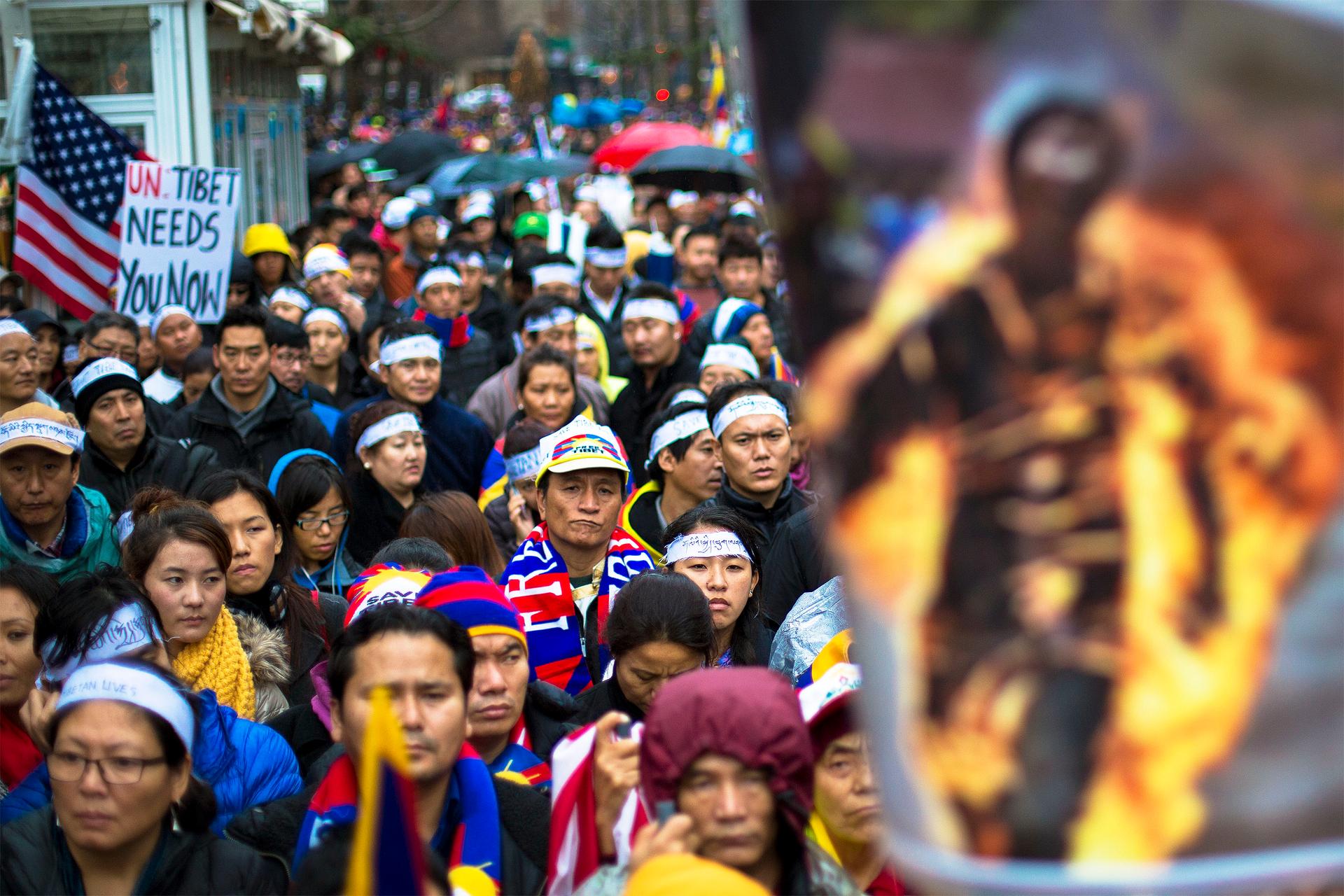Protesters stand behind a photo of a victim of self-immolation during a 2012 march in New York City in support of Tibet.
When a 37-year-old Tibetan monk named Kalsang Yeshi died after setting himself on fire in the southwestern Chinese province of Sichuan last week, writer and activist Tsering Woeser did what she always does: She posted details about the incident online, including on her Facebook page.
But Facebook deleted it, citing concerns about the graphic nature of the video Woeser linked to in the post. She says it was first time Facebook has censored her work in six years — and she contends it wasn't about protecting people from a disturbing video.
“I was really surprised. I couldn’t believe my eyes,” Woeser told the New York Times after getting a notice from Facebook about the deletion. “I thought, ‘How is it that this has become like a Chinese website?’ ”
Facebook did not respond to our requests for comment, but in a statement provided to the Times, the company wrote this about the deletion:
"Facebook has long been a place where people share things and experiences. Sometimes, those experiences involve violence and graphic videos. We work hard to balance expression and safety. However, since some people object to graphic videos, we are working to give people additional control over the content they see. This may include warning them in advance that the image they are about to see contains graphic content. We do not currently have these tools available and as a result we have removed this content."

Chinese state security officials have called and visited her many times, and she has been put under house arrest on occasion. But Woeser has also been left alone to publish her writings, albeit to an audience that is largely based outside of the Chinese mainland. Her blog is blocked inside China, and so are Facebook and Twitter.
When I interviewed Woeser for a story early this year, guys in a black car were waiting across the street as I showed up to meet her on the west side of Beijing. One of them was pointing a video camera at us. I mentioned this to Woeser, but she told me not to worry.
“If they wanted to stop our meeting today, they would have done it already,” she said.
Facebook’s decision to remove material related to Tibet, which Beijing considers a politically sensitive subject and scrubs from Chinese Internet sites, is seen as part of the company’s push for more access to the Chinese market.
Mark Zuckerberg, Facebook's founder and CEO, made a high-profile visit to China that included him showing off some of his new Chinese language skills. He also recently hosted China’s Internet tsar, Lu Wei, at Facebook headquarters.
A quick Facebook search from outside of China’s “Great Firewall,” however, reveals all kinds of material on the social media site that would never get past Chinese Internet censors. That includes pages dedicated to the exiled Tibetan spiritual leader, the Dalai Lama — China considers him an enemy of the state — human rights in Tibet and the student-led protests in Hong Kong.
Still, there are questions about what this one incident might portend for the future of a powerhouse like Facebook.
